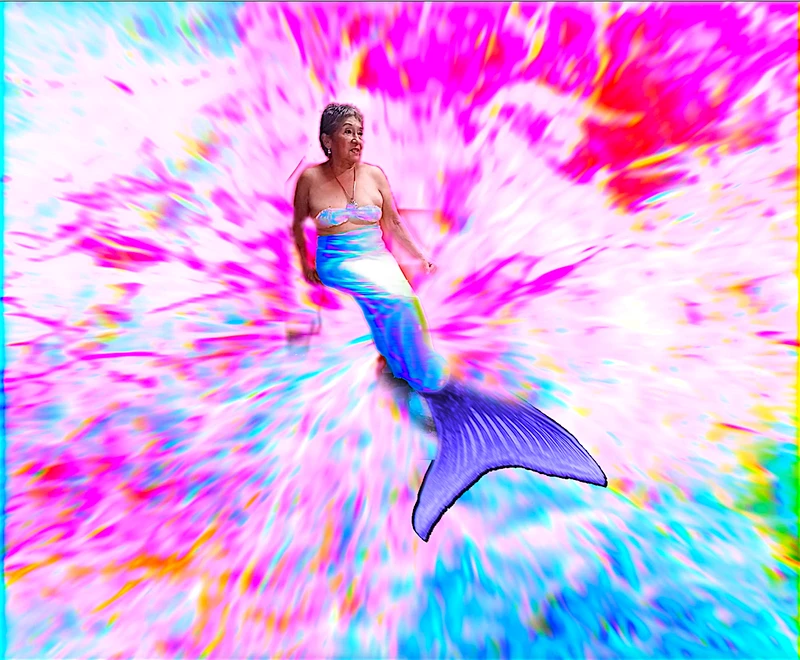transfeminisms Chapter V: Hidden Labours
7 Nov-14 Dec 2024


Mimosa House presents the fifth chapter of transfeminisms, a major survey touring exhibition, that brings to light a multiplicity of urgent, pressing and ongoing issues faced by women, queer and trans people across the globe. The fifth chapter will feature works by Cassils, Liz Cohen, Selma Selman and Elena Tejada-Herrera.
Hidden Labours unveils the unrecognised and often invisible gendered and emotional labours performed by women and LGBTQI+ individuals. The exhibition addresses the complex intersections of resilience, struggle, and celebration within these labours, challenging the stereotypes that have long shaped their histories and representation.
Focusing on unseen and, at times, coerced work related to activism, resistance, and survival in informal economies, the exhibition features performance, photography, and video to examine the labour of representation—how simply being visible in public can itself be a form of work.
Unfolding over five chapters, transfeminisms outlines strategies of resistance through propositions of collective action, care and radical imagination, in order to generate a more equitable future. The exhibition explores the lineage of feminist art practices by facilitating dialogue between emerging and more established artists.
The title transfeminisms is deliberately provocative. The prefix “trans” implies ‘across, beyond, through, on the other side of’; while the ‘s’ in ‘feminisms’ recognises the innumerable definitions of feminism worldwide. Our intention is for transfeminisms to be understood within an inclusive and decolonial context – one that takes us across feminisms and encompasses various ‘trans’ possibilities, such as: transcultural, transcontinental, transgender, transformative, transgressive, transitory, translucent, transparent, transaction, translation, transfusion, transmission, transmutation.
Cassils is a transgender artist who makes their own body the material and protagonist of their performances. Cassils's art contemplates the history(s) of LGBTQI+ violence, representation, struggle and survival. For Cassils, performance is a form of social sculpture: drawing from the idea that bodies are formed in relation to forces of power and social expectations, Cassils' work investigates historical contexts to examine the present moment.
Ghost, (2013) is a 4-channel sound installation which recreates the sounds of the artist’s breath, blows, grunts, and pulse rate during one performance of Becoming An Image (2012-present). We hear Cassils darting from one corner to the other and circling
the listener like a ghost. In the live performance Becoming An Image Cassils unleashes an attack on a 2,000 pound clay block in total darkness. The spectacle is illuminated solely by the flash of a photographer, burning the image into the viewer’s retina. Each live performance generates a series of still images that depict Cassils sweating, grimacing, and flying through the air as a primal force pummelling the one ton clay obelisk. Becoming an Image was originally conceived as a site-specific work for the ONE Archives in Los Angeles, the oldest active LGBTQ archive in the United States.
Photographer and performance artist Liz Cohen’s decades-long career focuses largely on the intersections of immigration, industry, labour, and women’s representation in popular media, which challenges American cultural norms as they pertain to the eroticisation of women’s bodies. Cohen’s most recent series, BODY MAGIC (2020), sees her examine the intersection of labour, femininity, representation and self-expression and poses the question: What does it mean to be seen, by ourselves and by others? In black and white photographs, Cohen poses with the iconic lowrider model Dazza Del Rio in images which make reference to Robert Mapplethorpe’s photographs of the bodybuilder Lisa Lyon.
Selma Selman’s ultimate aim is to protect and empower female bodies while promoting a cross-scalar approach to the collective self-emancipation of oppressed women. Her search for functional, contemporary political resistance arises from her personal experiences with oppression from multiple sources and scales. The works on view at Mimosa House engage with the artist’s own and her family’s stories: the video Salt Water after 47 (2016) shows Selma’s mother, previously stateless, experiencing the sea for the first time at age 47. The painting on metal, I’m a Lady like my Mother (2020), merges the traits of Selma and her mother into one indistinguishable portrait. This body of work on metal also reflects on the materiality of scrap metal collecting, referencing Selma’s father, who supported the family by converting metal waste in the Roma community of Bosnia and Herzegovina.
The installation They Sing, They Dance, They Fight, (2020) by Elena Tejada-Herrera includes several videos built upon the idea of the aesthetics of empowerment collaged into a disjointed narrative of female struggle and resistance with a post-Internet aesthetic. Beauty is a weapon for change. The artist deploys beauty, glamour, and absurdity to generate narratives that redefine notions of female physical strength and social agency offering alternatives to the roles assigned to women within the framework of a patriarchal capitalist society. Here women are physically strong, they can fight and they can hurt if necessary, unapologetically performing alternative constructions of femininity in a celebration of girls, trans women and cis women of all ages. Tejada-Herrera describes this work as “a trans-feminist video installation”.
Curators
Christine Eyene, Daria Khan, Jennifer McCabe and Maura Reilly
Assistant curators
Sandra Lam and Keshia Turley
Global Curatorial Advisors
Camille Auer, Giulia Casalini, Natasha Ginwala, Snejana Krasteva, Natalia Sielewicz, Gabriela Rangel, Lucía Sanromán, Olia Sosnovskaya, Stefanie Hessler, and Indira Ziyabek
transfeminisms is supported by
Lubaina Himid Projects
British Council
Mondriaan Fund
The Ashley Family Foundation
Grange Hotels
transfeminisms exhibition circle
Marcelle Joseph
Muriel Salem
Nayrouz Tatanaki
Mimosa House is supported by
Mimosa House patrons